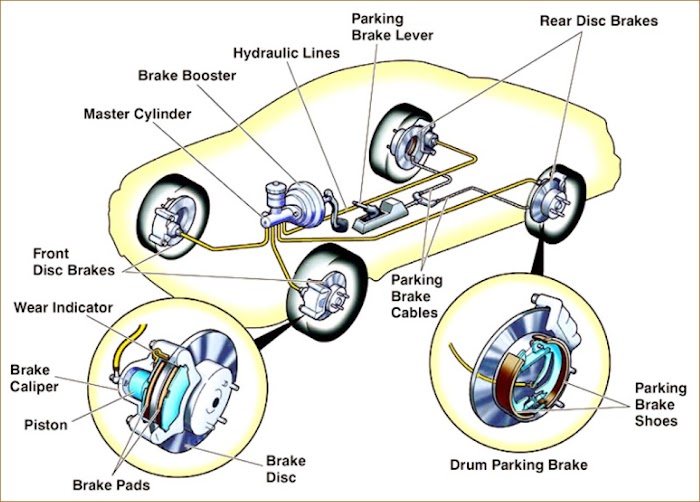
Here are some tips to take care of the brakes that will help you keep your car's brakes in excellent condition.
Your car carries you and your family, which is a wonderful asset. Your car's brakes are essential to ensure safety.
The system of brakes in most cars is overlooked because it is a low level of involvement and is often 'invisible, no longer working'.
Most of us do not pay much attention to our brakes until a problem arises. Usually, brake problems are noticed due to the grinding condition and the sponge on the brake step.
Here are some features of your brakes to consider:
Unequal braking:
Judge or delusion in your braking
motion could be the result of a broken or uneven disc. Although your local
mechanic will tell you how the problem can be fixed by repairing discs, over
time, it will affect the health of your discs. The best thing you can do is
install a new set of discs from your authorized service center. A new set of
disks will solve the brake judder.
Increase submission effort:
Often, an increase in pedestrian
effort in modern cars is directly linked to the failure of the brake booster. A
brake booster, a device that uses pressure from an exhaust system to deliver
energy to a master cylinder has a diaphragm, which can be easily damaged. One
should always remember to change the booster boiler and master cylinder as one
unit and never individually.
Keep increasing your brake fluid:
Brake liquid or oil brakes as it is always known as one of the most critical parts of your braking system. The movement of the brake fluid acting on the master cylinder and the slave cylinder's pistons to make caliper pistons.
Always remember to bleed the brake system after the entire service. Also, bleeding breaks should be done at least once a year as a precaution.
One should also be very careful when filling the
brake fluid container to make sure that nothing is lost such as footprints or
dirt getting into it. A missing external object can cause confusion in the brake
system.
Holding the brakes:
The suction from his brakes is usually an indication of the brakes or glossy pipes. The squeaking sound comes from the wear indicators built into the brake pads that meet the brake rotor when the brake pads are worn until they need to be replaced.
This design is designed to tell you when it's time to check the brakes and often change your brake pads.
Unfortunately, most people do not pay attention to the sound and wait until they hear the grinding, which means that the brakes go down with the wear indicators and on the rotors. When you hear a cry, get your brakes checked immediately.
And remember, there are no dress codes on the rear brakes. Have this checked every six months or if you are spinning tires.
ABS Light Warning:
While not a real-time mechanical brake problem, many cars with antilock brakes show off the light that warns of ABS failure. It is best to have them fixed before the problem is serious and for nerve implants.
The best way to avoid brake problems is to check your brakes every six months to avoid unpleasantness.


0 Comments: